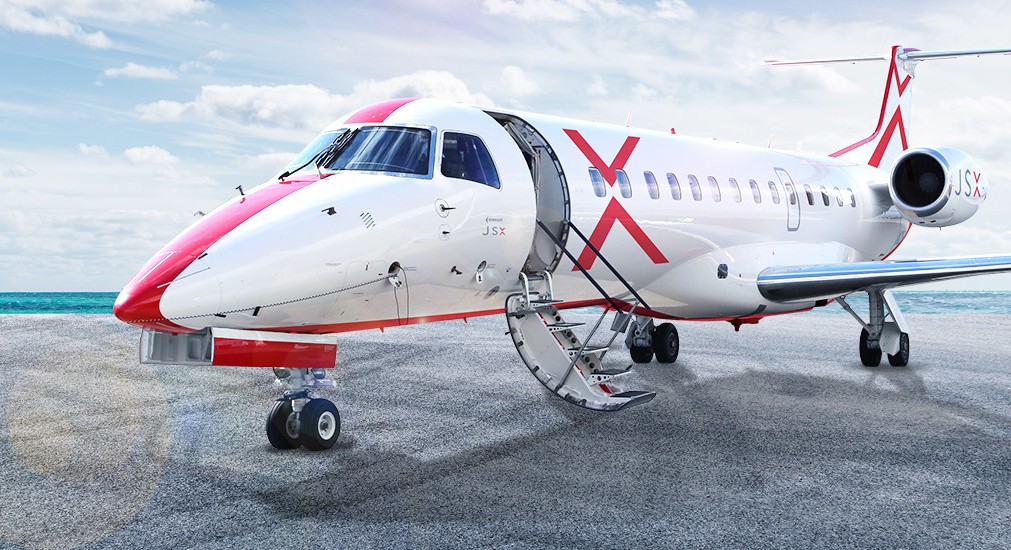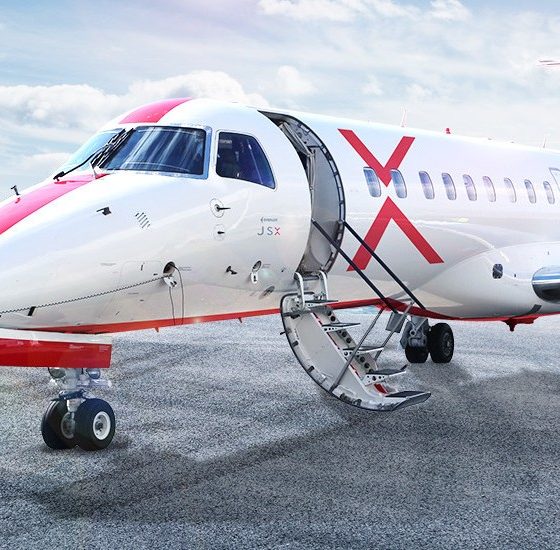SpaceX has tested the capabilities of Starlink on a JSX regional flight from Burbank to San Jose, California to see just how well the satellite internet system performs in a moving vehicle 30,000 feet in the air. As it turns out, Starlink performs admirably, providing speeds of over 100 Mbps for the plane’s passengers.
The satellite internet system’s speeds were tested by the JSX flight’s passengers through Ookla, a popular internet connection speed testing service. With 100 Mbps, the plane’s passengers were easily able to perform tasks like browse the internet, watch videos from Netflix and YouTube, and host video chats without any difficulties.
JSX is among the first airlines that opted to sign a deal with SpaceX to bring Starlink internet to its flights. Starlink, even in its current state, would be a good match for JSX’s customers, as the company provides flights in United States — in California, Florida, Texas, Nevada, New York, and Arizona.
JSX announced its Starlink deal on Twitter this past April, noting that it was bringing the “greatest Wi-Fi in the galaxy” to its flights for free later this year. Similarly, fellow airline Hawaiian Airlines announced that it was adding Starlink to some of its planes, with services expected to start around next year.
But while SpaceX has secured deals with JSX and Hawaiian, the private space company has reportedly found challenges getting deals with the United States’ largest airline providers like Delta. Earlier this year, reports emerged stating that SpaceX had pitched Starlink to four of the United States’ airline providers — but the company had been unsuccessful, according to a Bloomberg News report.
This is one of the reasons why JSX’s fight, which demonstrated Starlink’s capabilities, is a notable milestone. According to telecommunications analyst Roger Entner, JSX could be a proof of concept of sorts, as it could show that Starlink truly has the potential to revolutionize in-flight internet.
“This is a foot in the door for Starlink. This is the proof of concept. Once it works on JSX, it will work everywhere,” Entner said.
Don’t hesitate to contact us with news tips. Just send a message to simon@teslarati.com to give us a heads up.

News
Tesla lands massive deal to expand charging for heavy-duty electric trucks
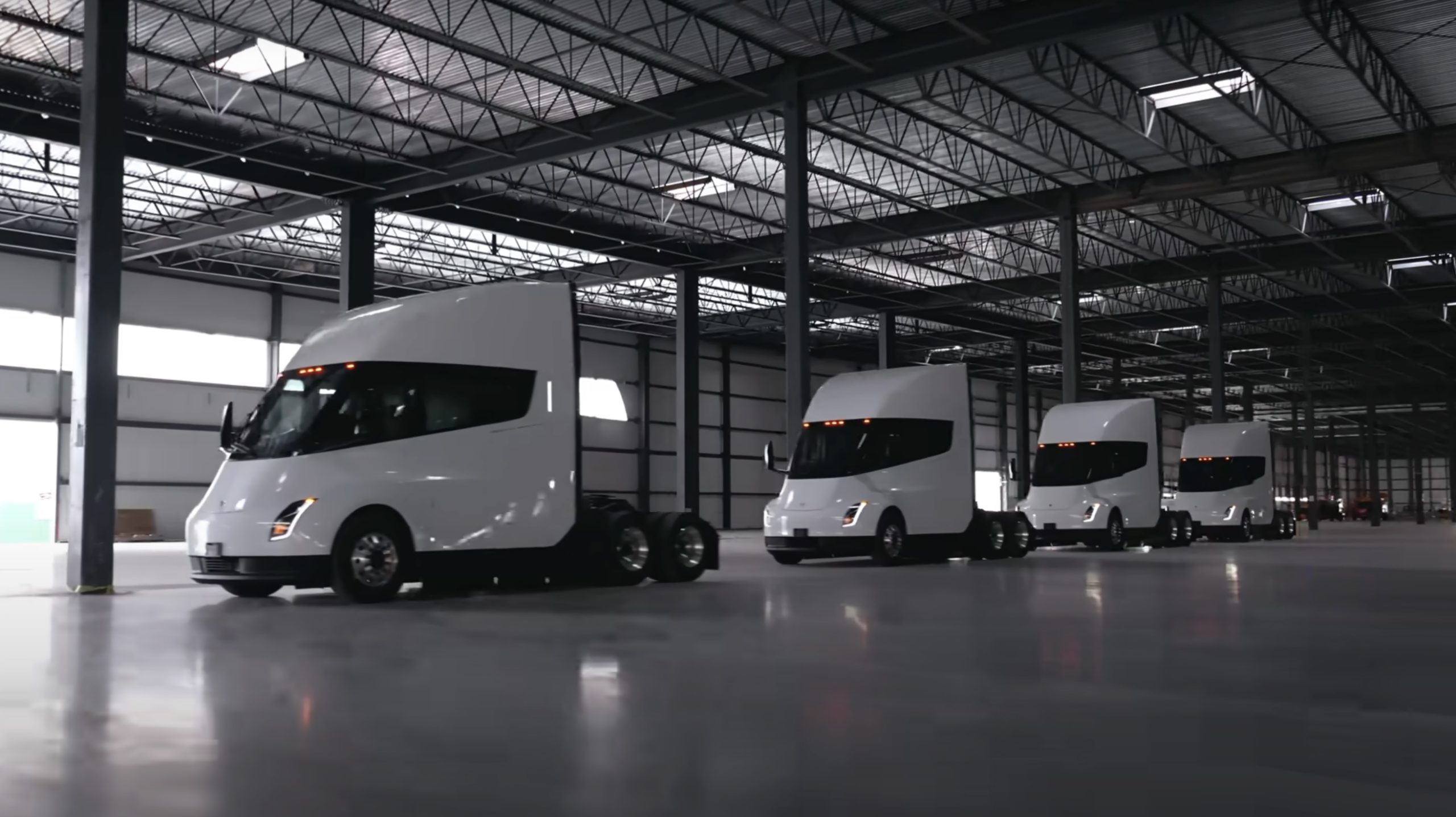
Tesla has landed a massive deal to expand its charging infrastructure for heavy-duty electric trucks — and not just theirs, but all manufacturers.
Tesla entered an agreement with Pilot Travel Centers, the largest operator of travel centers in the United States. Tesla’s Semi Chargers, which are used to charge Class 8 electric trucks, will be responsible for providing energy to various vehicles from a variety of manufacturers.
The first sites are expected to open later this Summer, and will be built at select locations along I-5 and I-10, major routes for commercial vehicles and significant logistics companies. The chargers will be available in California, Georgia, Nevada, New Mexico, and Texas.
Each station will have between four and eight chargers, delivering up to 1.2 megawatts of power at each stall.
The project is the latest in Tesla’s plans to expand Semi Charging availability. The effort is being put forth to create more opportunities for the development of sustainable logistics.
Senior Vice President of Alternative Fuels at Pilot, Shannon Sturgil, said:
“Helping to shape the future of energy is a strategic pillar in meeting the needs of our guests and the North American transportation industry. Heavy-duty charging is yet another extension of our exploration into alternative fuel offerings, and we’re happy to partner with a leader in the space that provides turnkey solutions and deploys them quickly.”
Tesla currently has 46 public Semi Charger sites in progress or planned across the United States, mostly positioned along major trucking routes and industrial areas. Perhaps the biggest bottleneck with owning an EV early on was charging availability, and that is no different with electric Class 8 trucks. They simply need an area to charge.
Tesla is spearheading the effort to expand Semicharging availability, and the latest partnership with Pilot shows the company has allies in the program.
The company plans to build 50,000 units of the Tesla Semi in the coming years, and with early adopters like PepsiCo, DHL, and others already contributing millions of miles of data, fleets are going to need reliable public charging.
🚨 Pilot working with Tesla to install and expand Semi Chargers is a perfect example of two industry leaders working together for the greater good.
As more commerce companies expand into EVs, Semi Charger will be more commonly available for electrified fleets, making efforts… pic.twitter.com/VPLIYyq15b
— TESLARATI (@Teslarati) January 27, 2026
Tesla is partnering with other companies for the development of the Semi program, most notably, a conglomeration with Uber was announced last year.
Tesla lands new partnership with Uber as Semi takes center stage
The ride-sharing platform plans to launch the Dedicated EV Fleet Accelerator Program, which it calls a “first-of-its-kind buyer’s program designed to make electric freight more affordable and accessible by addressing key adoption barriers.”
The Semi is one of several projects that will take Tesla into a completely different realm. Along with Optimus and its growing Energy division, the Semi will expand Tesla to new heights, and its prioritization of charging infrastructure.
Elon Musk
Elon Musk’s Boring Company opens Vegas Loop’s newest station
The Fontainebleau is the latest resort on the Las Vegas Strip to embrace the tunneling startup’s underground transportation system.
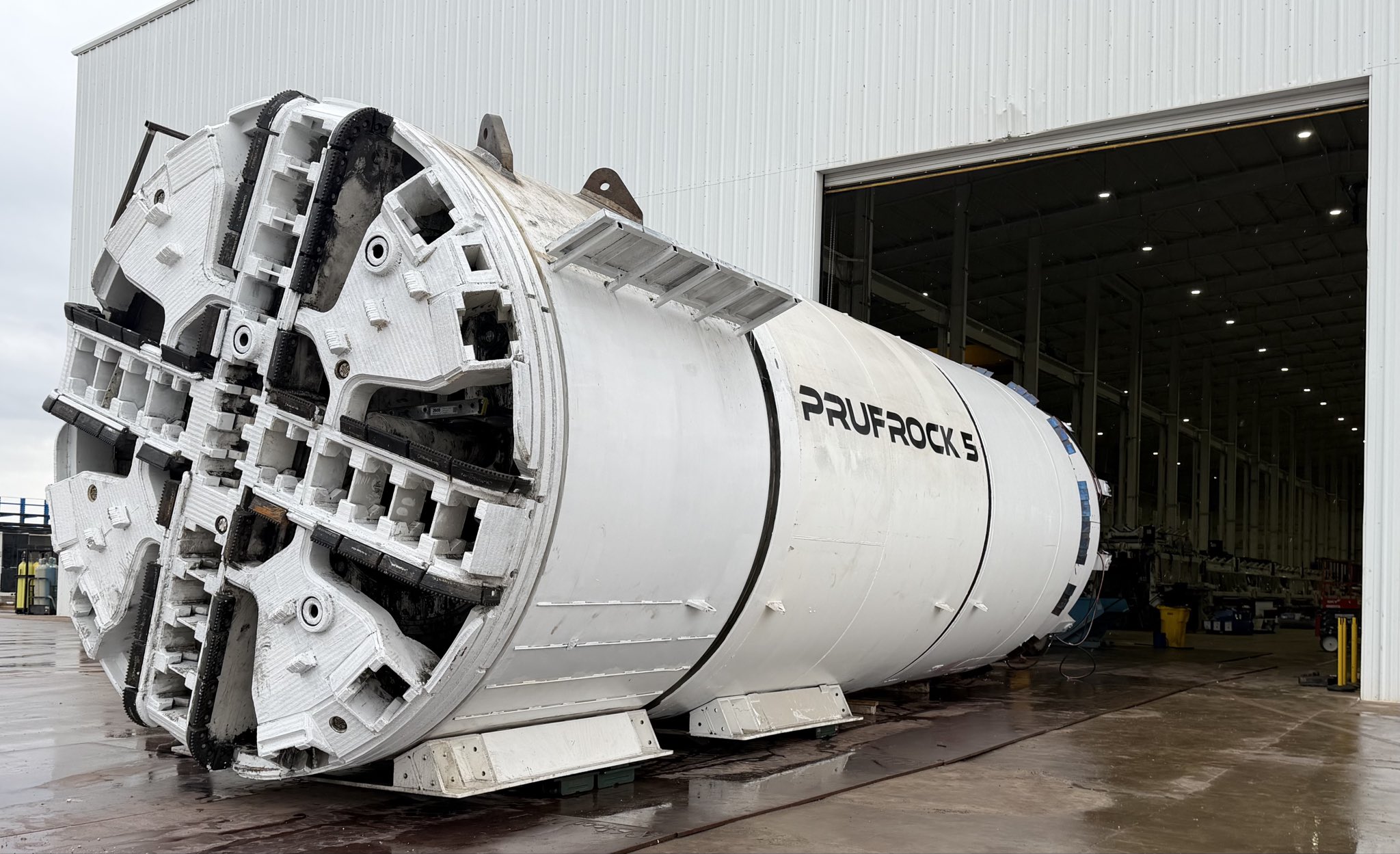
Elon Musk’s tunneling startup, The Boring Company, has welcomed its newest Vegas Loop station at the Fontainebleau Las Vegas.
The Fontainebleau is the latest resort on the Las Vegas Strip to embrace the tunneling startup’s underground transportation system.
Fontainebleau Loop station
The new Vegas Loop station is located on level V-1 of the Fontainebleau’s south valet area, as noted in a report from the Las Vegas Review-Journal. According to the resort, guests will be able to travel free of charge to the stations serving the Las Vegas Convention Center, as well as to Loop stations in Encore and Westgate.
The Fontainebleau station connects to the Riviera Station, which is located in the northwest parking lot of the convention center’s West Hall. From there, passengers will be able to access the greater Vegas Loop.
Vegas Loop expansion
In December, The Boring Company began offering Vegas Loop rides to and from Harry Reid International Airport. Those trips include a limited above-ground segment, following approval from the Nevada Transportation Authority to allow surface street travel tied to Loop operations.
Under the approval, airport rides are limited to no more than four miles of surface street travel, and each trip must include a tunnel segment. The Vegas Loop currently includes more than 10 miles of tunnels. From this number, about four miles of tunnels are operational.
The Boring Company President Steve Davis previously told the Review-Journal that the University Center Loop segment, which is currently under construction, is expected to open in the first quarter of 2026. That extension would allow Loop vehicles to travel beneath Paradise Road between the convention center and the airport, with a planned station located just north of Tropicana Avenue.
News
Tesla leases new 108k-sq ft R&D facility near Fremont Factory
The lease adds to Tesla’s presence near its primary California manufacturing hub as the company continues investing in autonomy and artificial intelligence.
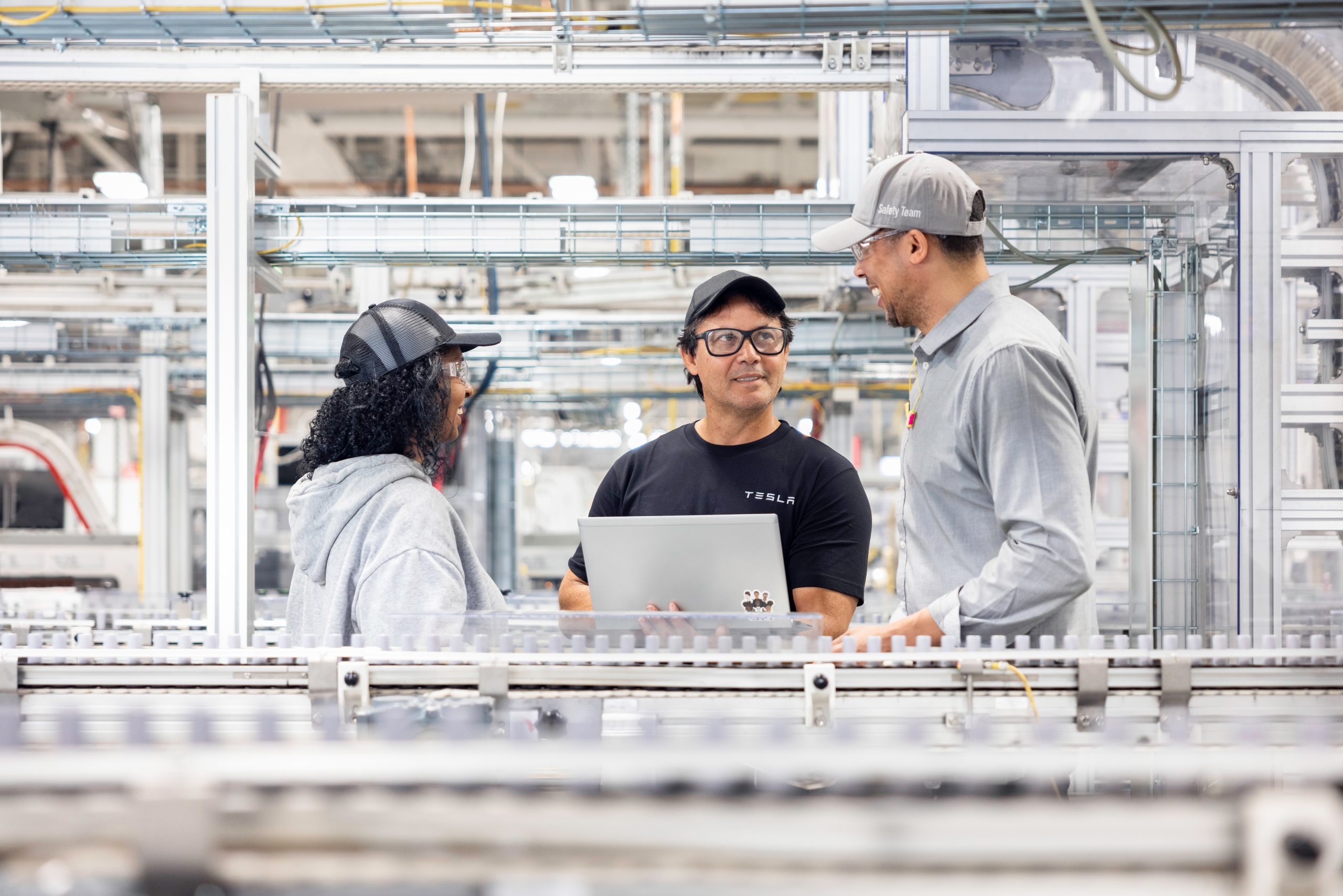
Tesla has expanded its footprint near its Fremont Factory by leasing a 108,000-square-foot R&D facility in the East Bay.
The lease adds to Tesla’s presence near its primary California manufacturing hub as the company continues investing in autonomy and artificial intelligence.
A new Fremont lease
Tesla will occupy the entire building at 45401 Research Ave. in Fremont, as per real estate services firm Colliers. The transaction stands as the second-largest R&D lease of the fourth quarter, trailing only a roughly 115,000-square-foot transaction by Figure AI in San Jose.
As noted in a Silicon Valley Business Journal report, Tesla’s new Fremont lease was completed with landlord Lincoln Property Co., which owns the facility. Colliers stated that Tesla’s Fremont expansion reflects continued demand from established technology companies that are seeking space for engineering, testing, and specialized manufacturing.
Tesla has not disclosed which of its business units will be occupying the building, though Colliers has described the property as suitable for office and R&D functions. Tesla has not issued a comment about its new Fremont lease as of writing.
AI investments
Silicon Valley remains a key region for automakers as vehicles increasingly rely on software, artificial intelligence, and advanced electronics. Erin Keating, senior director of economics and industry insights at Cox Automotive, has stated that Tesla is among the most aggressive auto companies when it comes to software-driven vehicle development.
Other automakers have also expanded their presence in the area. Rivian operates an autonomy and core technology hub in Palo Alto, while GM maintains an AI center of excellence in Mountain View. Toyota is also relocating its software and autonomy unit to a newly upgraded property in Santa Clara.
Despite these expansions, Colliers has noted that Silicon Valley posted nearly 444,000 square feet of net occupancy losses in Q4 2025, pushing overall vacancy to 11.2%.
